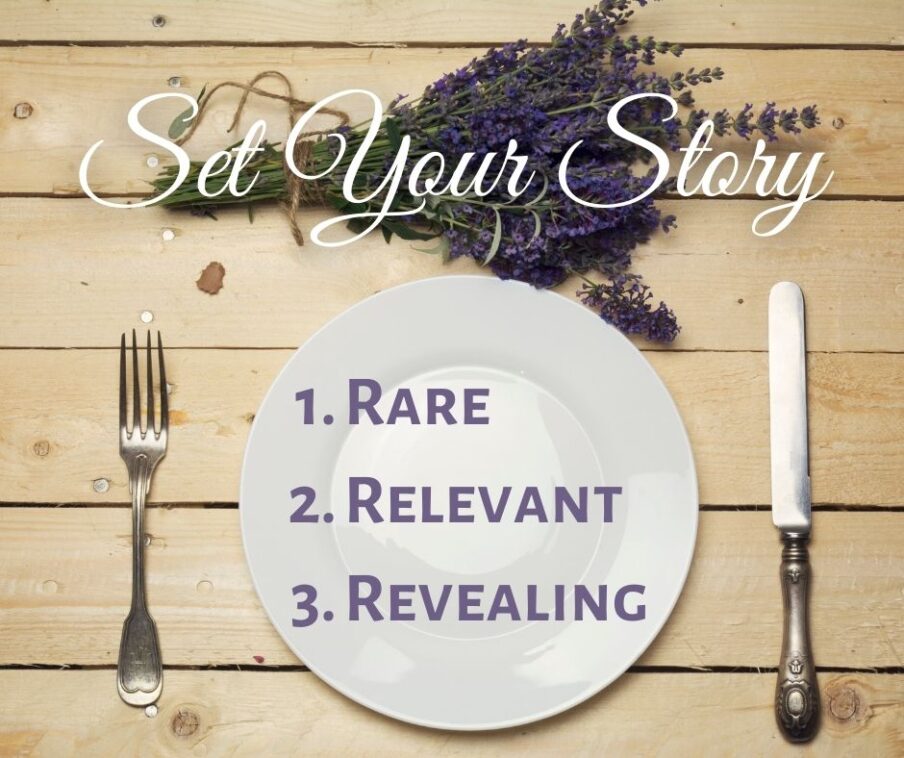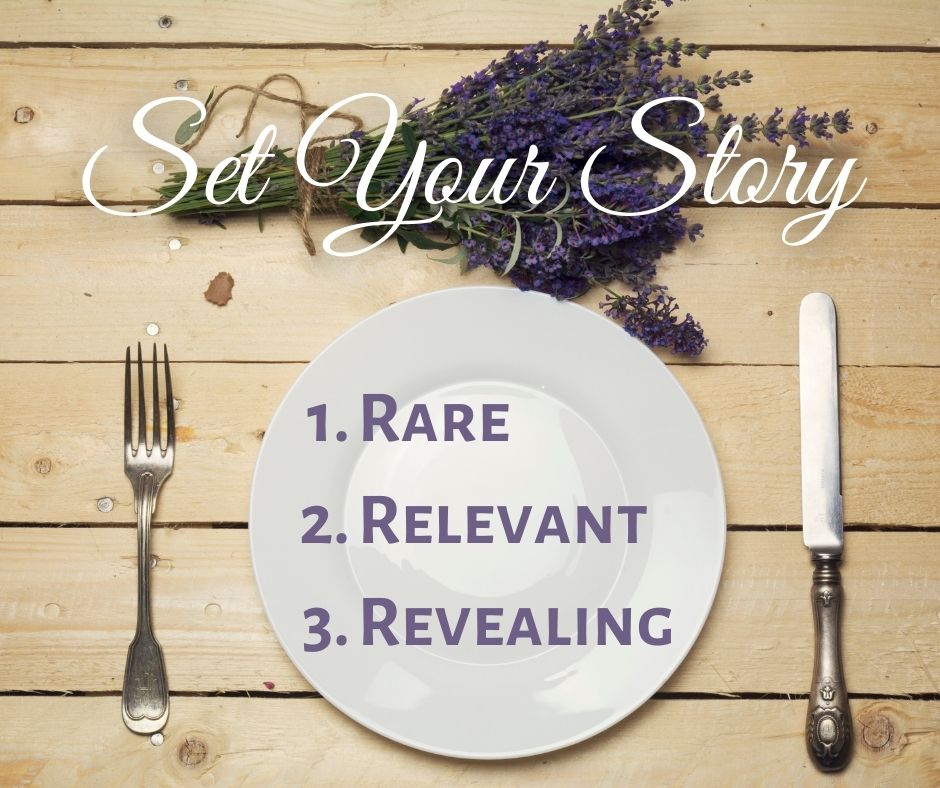by Angela Ruth Strong, @AngelaRStrong
I invited my grown daughters over to make pizza with me last night, so I ran to a grocery store where I knew they sold fresh pizza dough. I knew this because I used to buy it when my kiddos were young. What I didn’t know was that as soon as I pulled up to this supermarket, memories from raising little ones would come rushing back.
This store was more than a store. It was a symbol. A mile marker. A reminder of a different time. It was exactly what our story settings should be.
While I only planned to check out pizza dough, I left with three tips on setting a scene for you to check out. Set your story in a place that is…
Rare I read a review of Crazy, Rich Asians where the reviewer claimed the book had a recipe for success, which included a unique world. I’d always thought of unique worlds as limited to sci-fi and fantasy. A unique world for rom-com? That was a new concept to me. But it makes sense. We don’t always have to build a new world, we just have to uncover unique aspects of that world to make the place stand out.
In my grocery store experience, I was simply going shopping. Not unique at all. Everyone has been to a supermarket. What makes my story memorable is the pizza dough. This particular store bakes and sells hot pizza to customers at the front of the store while the deli section offers all kinds of pizza ingredients to create your own. There are plastic cartons filled with everything from sauce to mozzarella to pepperoni—even pesto and pre-cooked chicken for those of us who suddenly missed catering to toddlers.

Relevant Have a reason why you set your story where you set it. In Every Deadly Kiss by Steven James, he takes advantage of Detroit’s downfalls. The POV character explains how the mass exodus has left homes abandoned and without enough tax funding for police to keep the city safe. On top of that, there’s an abundance of bomb shelters leftover from the 60s. All of these things come into play to the degree that his story couldn’t be set anywhere else in the nation.
A favorite of my grocery store memories came from the POV of my preschooler. As I picked out fresh produce, I heard her say, “How sad is that?” I looked around for something sad but didn’t see anything out of the norm. “What?” I asked. She pointed toward a couple shopping and said, “They left their kids at home.” To her, the grocery store had become a special place for parent/child bonding. It doesn’t get much more relevant than that. And the memory made me sad to be shopping without her.
Revealing For screenplay writing, I learned to highlight an emotion by setting a character in a situation where everyone else is feeling the opposite. For example, if you want to show how depressed your character is, you place them at a party where the rest of the characters are laughing and having a good time. In the same way, you can also use your background to highlight character growth. Return them to the same setting to reveal how they’ve changed. Think of Jim Carrey in Liar, Liar. The courtroom is his growth chart. He went from being the best to beating himself.
Now back to my supermarket setting where the seat of a shopping cart symbolized a rite of passage. My memories centered on the time my youngest sat in the big part of the shopping cart while her older siblings surrounded her with food until all you could see was her crazy grin peeking through. Though I wouldn’t put it past her to do the same thing today, she probably wouldn’t fit anymore. She’d grown, and I’d grown nostalgic.
Whether you’re setting your scene in a grocery store or in outer space, make sure the setting is rare, relevant, and revealing. Then your work will have a deeper impact on readers in the same way my grocery store memories affected me.
In a world full of happily-ever-after love, Meri Newberg feels like the last young woman on the planet to be single, at least in her Christian friend group. So when she’s handed a strange present at the latest wedding–a 1950s magazine article of “ways to get a husband”–she decides there’s nothing to lose by trying out its advice. After all, she can’t get any more single, can she?
Her brother’s roommate sees the whole thing as a great opportunity. Not to fall in love–Kai Kamaka has no interest in the effort a serious relationship takes. No, this is a career jump start. He talks Meri into letting him film every silly husband-catching attempt for a new online show. If it goes viral, his career as a cameraman will be made.
When Meri Me debuts, it’s an instant hit. People love watching her lasso men on street corners, drop handkerchiefs for unsuspecting potential beaus, and otherwise embarrass herself in pursuit of true love. But the longer this game goes on, the less sure Kai is that he wants Meri to snag anyone but him. The only problem is that he may not be the kind of husband material she’s looking for . . .
Angela Ruth Strong sold her first Christian romance novel in 2009 then quit writing romance when her husband left her. Ten years later, God has shown her the true meaning of love, and there’s nothing else she’d rather write about. Her books have since earned TOP PICK in Romantic Times, been optioned for film, won the Cascade Award, and been Amazon best-sellers. She also writes non-fiction for SpiritLed Woman. To help aspiring authors, she started IDAhope Writers where she lives in Idaho, and she teaches as an expert online at WRITE THAT BOOK.



